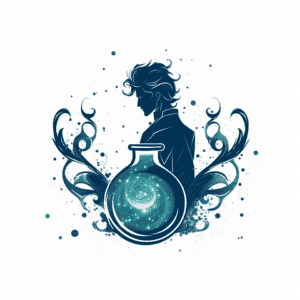The Ring of Gyges: You’ve likely heard of Tolkien’s One Ring, but what about the Ring of Gyges? This ancient artifact, explored in Plato’s ‘Republic,’ grants invisibility and poses a timeless moral question: Would you maintain virtue if invisible? In this piece, you’ll delve into the philosophical implications of such power, its role in literature, and how it shapes our understanding of morality today.
The Tale of Gyges and the Magic Ring
In our FAQ, we’ll need to reference ‘The Lord of the Rings’ when discussing the Tale of Gyges and the Magic Ring. The tale is an ancient story from Plato’s Republic that questions morality in a way similar to Tolkien’s epic. So, let’s get started.
You’re likely familiar with the concept – a ring grants its wearer invisibility, ultimately testing their moral compass. In ‘The Lord of the Rings’, it corrupts those who wear it, whereas in the Tale of Gyges, it provides Gyges with unchecked power leading him down a path of tyranny.
Consider this: when you are invisible and free from societal judgment or consequences, do you remain true to your morals? Or does absolute power corrupt absolutely?
Gyges was just a shepherd before discovering the ring. He used it for his benefit—assassinating the king and marrying his widow—to rise as ruler himself. His actions were not guided by any sense of right or wrong but by self-interest alone which brings us to question if morality exists without consequence?
Tolkien’s ring shares striking similarities with this narrative; however, Frodo’s journey illustrates more complexity around temptation and resistance – reflecting on how even those with good intentions can falter under immense power.
Essentially, these tales compel us to examine human nature itself—is man inherently good or evil? We’re left pondering whether without laws and societal norms keeping our behavior in check, would we all descend into corruption as Gyges did? It’s open-ended for deliberation because after all isn’t that what makes literature enduringly fascinating?
Philosophical Interpretations of the Ring of Gyges
You’re delving into the philosophical interpretations surrounding this ancient artifact, aren’t you? The Ring of Gyges is not just a mere trinket; it’s an influential symbol in the realm of philosophy. It’s been posited by many scholars that this ring represents moral relativism and the quest for absolute power.
Plato, in his Republic, presents the story of Gyges to question justice itself. You know how it goes: Gyges, upon discovering that he can become invisible at will, succumbs to temptation and commits acts he wouldn’t dare commit visible. Plato interprets this as a demonstration that people act morally only because they fear punishment; remove accountability and morality dissipates.
The ring also invites comparisons with J.R.R Tolkien’s “One Ring”. You’re familiar with its influence – it corrupts anyone who wears it, driving them toward malevolent actions. An interpretation could be made that Tolkien draws on Plato’s thought experiment to explore similar themes of power and morality.
However, extending beyond individual ethics, some philosophers see social implications in the tale of Gyges’ ring too. They argue that our legal systems reflect an ingrained fear of invisibility; laws are designed to keep societal order intact in case someone discovered such a ring today!
Thus, whether considering personal morals or societal constructs, you’re seeing how deeply influential this conceptual ‘Ring of Gyges’ has been throughout history. So remember – when examining artifacts like these – you’re not just looking at objects but ideas encapsulated within them – ideas about human nature and society at large.

The Ring’s Role in Plato’s Republic
Diving deeper into Plato’s Republic, it’s clear how this mystical artifact plays a pivotal role in questioning the nature of justice and morality. The Ring of Gyges serves as a thought experiment used by Plato to explore the idea that people are only moral because they fear punishment.
When you first encounter the ring in your reading, you’re challenged with this question: Would you remain just if given complete anonymity? It forces you to ponder:
- If all societal restraints were removed, would we still choose to act morally?
- Is our sense of justice tied to external rewards or punishments?
- Are ethics subjective, dependent on individual perspectives?
The ring grants its wearer invisibility at will. With no fear of reprisal or judgment, what path would one choose? This is where Plato introduces his concept of ‘Justice for Justice’s Sake.’ The argument is made that even without the threat of punishment, there exists within us an inherent desire for goodness.
In stark contrast with Lord of the Rings where power corrupts even those with noble intentions; here Plato suggests that true justice isn’t about fear but about harmony and balance within oneself.
To fully grasp these philosophical nuances presented by Plato requires not just intellect but emotional openness too. You must delve into your own understanding of ethics and morality while navigating through this imagined scenario. As you do so, remember that each interpretation adds a layer to the multifaceted debate surrounding human nature – a debate which continues till today thanks largely to artifacts like the Ring of Gyges from ancient texts like The Republic.
The Power and Corruption of Invisibility
That’s where Plato’s Republic takes an interesting turn, exploring the tempting allure of invisibility and how it might corrupt even the most virtuous. You see, in this classical text, a shepherd named Gyges discovers a ring that grants him the power of invisibility. The moral quandary begins when he uses this newfound ability for personal gain and immoral acts.
| Ring bearer | Uses of Invisibility | Potential Corruption |
|---|---|---|
| Gyges (Plato) | Personal Gain & Immoral Acts | High |
| Sauron (LOTR) | Power & Domination | Extreme |
| Harry Potter | Protection & Heroism | Low |
In the context of Plato’s Republic, you can’t ignore the fact that Gyges is driven to corruption not because he was innately evil but due to his inability to resist such unbridled power. This is a clear testament to Plato’s belief that unrestrained power without accountability can lead even a principled individual towards immorality.
The same theme resonates in J.R.R Tolkien’s Lord of The Rings (LOTR). Here too, the ring bearers grapple with immense temptation as they don an invisible cloak. However, in contrast to Gyges’ story, Frodo Baggins manages to resist corruption despite carrying Sauron’s ring.
Juxtaposing these narratives with J.K Rowling’s Harry Potter series where Harry uses his invisibility cloak primarily for protection gives you another perspective – suggesting that perhaps it isn’t invisibility per se but rather its misuse influenced by one’s intentions and character traits which leads to corruption.
Comparisons to Modern Concepts of Morality
It’s interesting to compare these classical and literary interpretations of power and corruption with modern concepts of morality. You can see how the tales of ‘the Ring of Gyges’ and ‘The Lord of the Rings’ reveal a timeless, universal struggle between personal desires for power and societal norms.
You might find that many contemporary moral perspectives emphasize empathy, honesty, and respect for others. Yet there’s an inherent tension between these values and the drive for self-advancement which is often rewarded in our society.
Consider three major elements:
- Human nature: Both ancient myths and modern stories show us grappling with our dual inclination towards cooperation and competition.
- The role of power: Whether it’s invisible rings or corporate ladder climbing, narratives explore how unchecked authority can corrupt even those with good intentions.
- The importance of accountability: From Plato’s philosopher-kings to today’s whistleblowers, we’re reminded that transparency helps keep power in check.
Reflect on these points as you navigate your own path through life. As history shows, even the most well-intentioned individuals can get lost in their pursuit of power if they don’t remain grounded by a strong sense of morality. It’s not easy to resist temptation, especially when it offers such immediate rewards. But remember the lessons from these tales – unchecked power without moral restraint invariably leads down a path towards corruption.
The Lasting Impact of the Ring of Gyges Story
You’ve probably noticed how this ancient story still resonates with us today, demonstrating its enduring influence. The tale of the Ring of Gyges is a timeless one that continues to shape our understanding and exploration of morality and power dynamics.
The reason for its lasting impact lies in its exploration of human nature’s darker side. This is not simply about an invisible ring; it’s a narrative probing the ethical conundrums faced when given absolute power. It forces you to question: would you maintain your moral compass if there were no consequences for your actions?
Consider J.R.R Tolkien’s ‘Lord of the Rings’ series, where the One Ring shares striking similarities with the Ring of Gyges. You see, just like Gyges’ ring, Tolkien’s One Ring grants its wearer invisibility but also corrupts them over time, reflecting Plato’s examination into unchecked power and immorality.
This age-old philosophical dilemma has been revisited repeatedly throughout history in various forms – be it literature, film, or political discourse – testifying to its profound impact. It continually asks us to grapple with questions about what drives our behavior: Is it fear of punishment or inherent goodness?
Even today’s discussions around surveillance technology echo this story’s themes—what happens when individuals gain unregulated access to information and thus acquire unprecedented levels of power? The persistent relevance and application of the Ring of Gyges tale underscore its significant place within our collective cultural consciousness.

Frequently Asked Questions
How Does the Ring of Gyges Compare to the One Ring in J.R.R. Tolkien’s ‘Lord of the Rings’ Series?”
You’re exploring similarities between two influential rings in literature – Tolkien’s One Ring and another mysterious ring. The One Ring, central to Tolkien’s ‘Lord of the Rings’ series, is a powerful artifact that corrupts its wearer. It grants invisibility but also brings despair, delusions of grandeur, and eventual ruin. But how does this compare to another ring you might ask? Let’s explore further for a more comprehensive understanding!
Are There Any Notable Differences Between the Invisibility Granted by the Ring of Gyges and the Invisibility Granted by the One Ring in ‘The Lord of the Rings’?”
You’re asking about the differences in invisibility granted by two rings, one from ‘The Lord of the Rings’ and another ring. While both provide invisibility, their effects differ significantly. The One Ring corrupts its bearer over time and can even control them. It also makes you visible to Sauron and his servants when worn. These features aren’t present with the other ring’s invisibility power, showing notable differences between them.
Has J.R.R. Tolkien Ever Cited the Ring of Gyges as an Inspiration for the One Ring in His ‘Lord of the Rings’ Series?”
You’ve asked if J.R.R. Tolkien ever admitted that the Ring of Gyges inspired his One Ring in ‘The Lord of the Rings.’ Unfortunately, there’s no record of Tolkien explicitly making this connection. As an Oxford scholar, he was certainly aware of Plato’s tale, but it seems he drew more from Nordic and Celtic myths for his ring lore. So while similarities exist, we can’t definitively say the Ring of Gyges directly influenced Tolkien’s creation.
What Parallels Can Be Drawn Between the Moral Dilemmas Faced by the Characters in ‘The Lord of the Rings’ and the Philosophical Interpretations of the Ring of Gyges?”
You can draw several parallels between the moral dilemmas in ‘The Lord of the Rings’ and various philosophical interpretations. Both involve a powerful ring that tests the characters’ morality. They’re forced to choose between personal gain or doing what’s right, highlighting the struggle with power and corruption. But remember, Tolkien never explicitly cited this ancient myth as inspiration for his narrative.
Are There Any Characters in ‘The Lord of the Rings’ Who Face Similar Temptations or Moral Conflicts as Gyges Did With the Ring of Gyges?”
Yes, you’ll see similar temptations in ‘The Lord of the Rings’. The character Frodo Baggins faces a moral conflict much like Gyges. He’s tempted to use the power of his ring for personal gain or evil purposes, mirroring Gyges’ dilemma. Despite this, Frodo strives to resist these urges, showcasing a struggle between his inherent goodness and the corrupting influence of the ring’s power.
Conclusion
So, you’ve journeyed through the tale of Gyges and his infamous ring. Like a viral tweet from ancient Greece, this story has echoed through time, challenging our modern concepts of morality. Ultimately, it’s not about invisibility but power’s potential to corrupt. Remember this cautionary tale next time you’re tempted to misuse your own “rings” of power.

